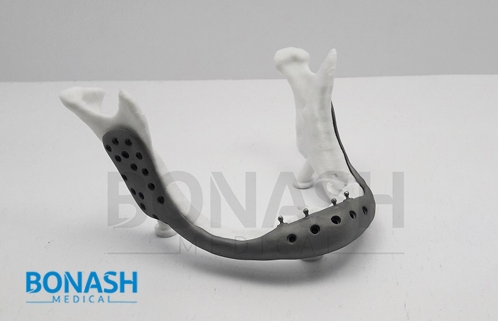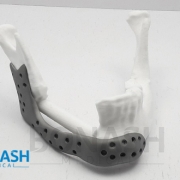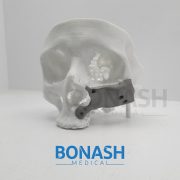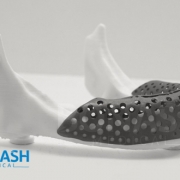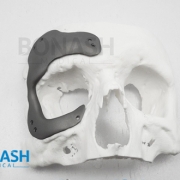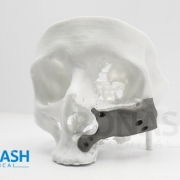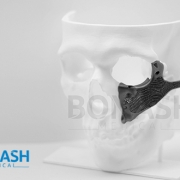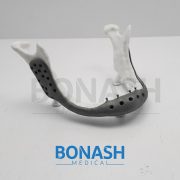3D Printed Implants
Adaptation of bone implants with 3-D printing
One way to minimize the disparity between the material properties of the bone and 3D printed implants (patient specific implants) is match the mechanical properties and the stiffness. By inserting pores in the 3D printed titanium implants, the elastic modulus of the material can be reduced and bring closer to bone.
Using additive manufacturing techniques, 3d printed titanium implants with desired porosity can be predesigned which are also tailored for wall thickness, pore size, and bulk modulus.
For a patient-matched cranioplasty, the customizable nature of Patient specific implant lends itself to manufacture, ship, and autoclave at a competitive price point. Custom made implants benefit from many of the same advantages as Digital Surgery Planning (for example, CMF reconstruction) in that the advanced preparation can reduce operating room time, reduce risk, and help improve surgical outcomes.
Porous Patient Specific Implants (PSI) are comparable to cortical bone and designed from patient scan data to create a customized, patient-specific solution. 3d printed implants are commonly used as an alternative to bone flaps to fill a defect or void in the cranial skeleton.
With extensive experience in computer-aided design and equipped with the latest 3D technologies, Bonash can supply you with a wide range of custom made implant.

